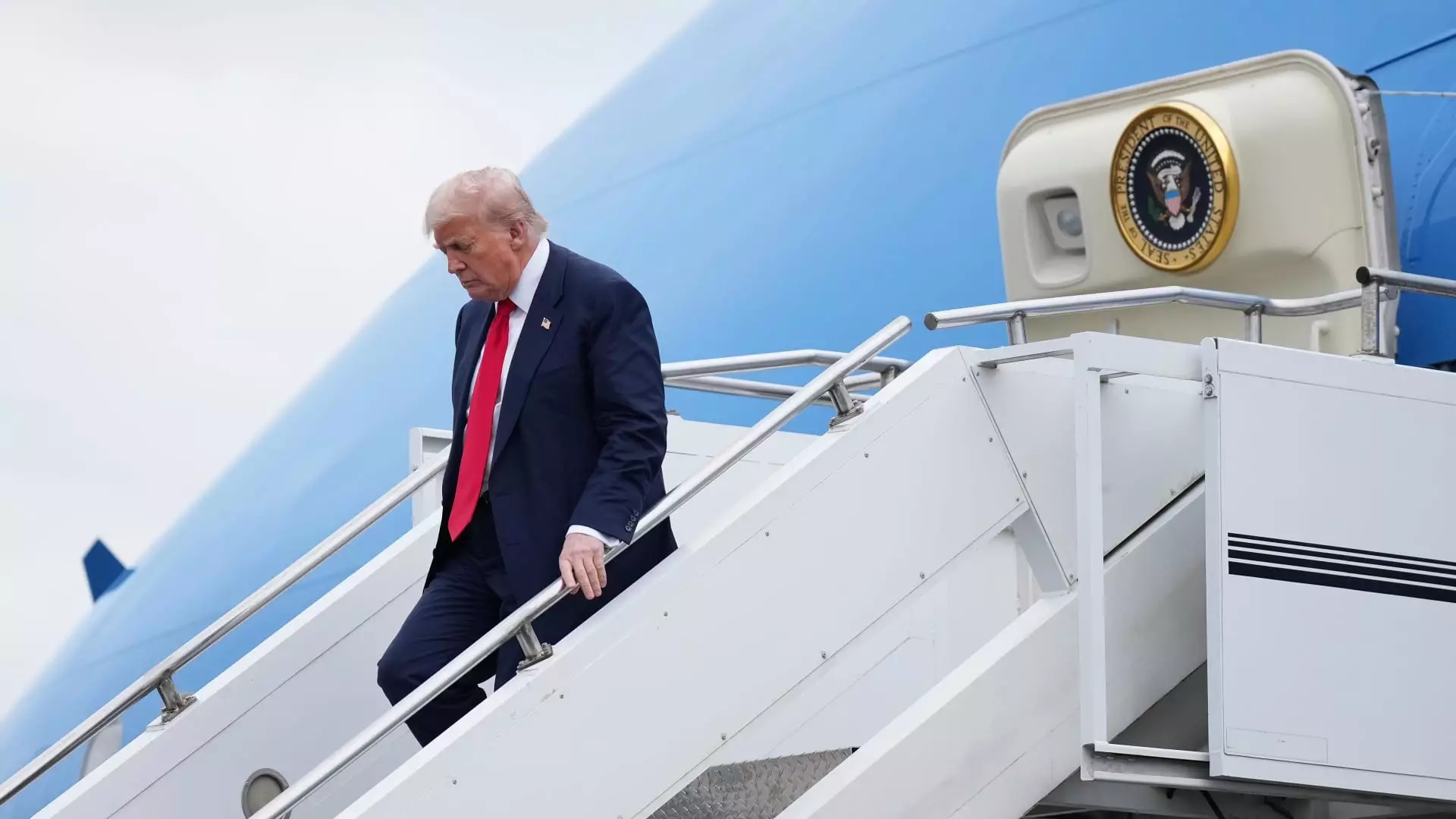The upcoming meeting between Ursula von der Leyen and Donald Trump is less about forging a meaningful economic alliance and more about a political spectacle fraught with uncertainty. Despite superficial optimism, this diplomatic encounter masks a deeper underlying tension rooted in protectiveness, nationalism, and economic self-interest. Both leaders are acutely aware that their actions, more than their words, could ignite a trade war that would unilaterally disrupt an already delicate global economy. But the optimism around avoiding tariffs—particularly the recent talks about a potential 15% baseline—may ultimately prove to be wishful thinking. History has shown that such negotiations are often more about saving face than achieving transformational agreements.
The Illusion of Compromise
While the mainstream narrative celebrates the possibility of a deal, there’s an inherent danger in overestimating the significance of these talks. Both the EU and the U.S. are driven by domestic political pressures that make concessions politically costly. For President Trump, maintaining strength in trade negotiations is a way to bolster his claim of defending American interests, even if it means threats of tariffs and trade disruptions. For Ursula von der Leyen, the European Union aims to protect its economic sovereignty while navigating the unpredictable terrain of U.S.-led negotiations. The potential compromise—a 15% tariff—sounds like a diplomatic victory, but in reality, it may be a hollow gesture masking ongoing economic tensions. When both sides are perched on the edge of imposing a 30% tariff, the 15% offers only a temporary reprieve, not a cure.
Trade as a Weapon, Not a Win-Win Solution
The current climate reveals how trade policies have been weaponized in the battle for global influence and economic dominance. The U.S. under Trump has consistently used tariffs as leverage, framing trade as a zero-sum game in which America must protect itself against unfair competition. Meanwhile, the EU’s stance reflects a cautious desire to avoid escalation but also underscores its unwillingness to surrender economic leverage. It’s ironic that a relationship responsible for nearly half of the world’s GDP is now at risk of becoming a battleground of tit-for-tat tariffs. This fragile equilibrium underscores the failure of neoliberal trade policies that prioritized growth over fairness and worker protections, leaving both continents vulnerable to the fallout of an all-out trade war.
Global Ramifications and the Specter of Isolationism
The tentative negotiations are further complicated by wider geopolitical implications. The U.S.-Japan agreement, which Trump trumpeted as “perhaps the largest deal ever made,” signals a willingness to reshape traditional alliances in favor of bilateral deals that serve national interests over multilateral cooperation. While such deals might offer short-term gains, they erode the fabric of global trade stability. The EU, meanwhile, faces the conundrum of balancing economic integration with political sovereignty, all while trying to avoid Trump’s America First agenda. If these negotiations fail, the world risks slipping into a fragmented trade environment, where protectionism and xenophobia threaten to overshadow the benefits of global cooperation.
Will Rationality Prevail—or Will Fear Prevail?
The looming threat of tariffs is not just a matter of economics—it’s a test of leadership and international diplomacy. Yet, the optimism displayed by officials belies a more sobering truth: that both the EU and U.S. are susceptible to the impulses of fear and nationalism. The negotiations, which are ostensibly about trade, are really a battleground for ideology, influence, and economic sovereignty. If diplomatic talks falter, the consequences will ripple across markets, employment, and international relations, overshadowing any superficial gains from a hurried or superficial agreement. Both sides have much to gain from acting rationally, yet both seem increasingly inclined to prioritize political posturing over lasting solutions.

Leave a Reply